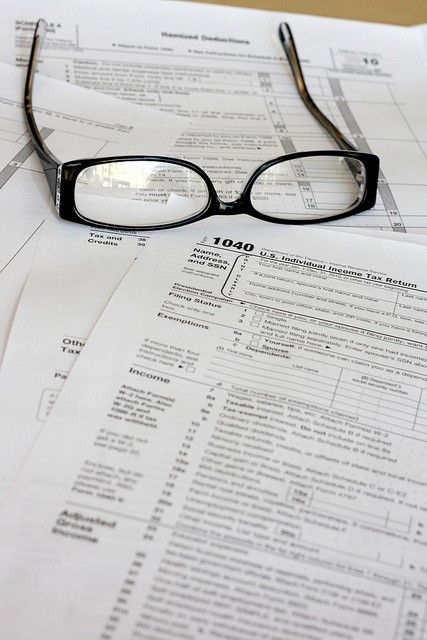
Buying your first home is a lot like your senior prom — You're nervous, you're excited, and you're hoping it's everything you ever dreamed of. Avoid turning that dream into a nightmare by following these useful tips and advice. You don't want to end up owning a home you'll regret ten years down the line.
Know Your Limits
If Florida's subprime mortgage crisis taught us anything, it's that banks are never sure how much you can afford. Your first step is to analyze your regular spending habits and figure out just how much money you can put away for a deposit, a down payment, and for a regular mortgage, if you need one. Be honest with yourself during this phase of your home search. It's vital you understand the difference between what you need, what you want, and how much you can afford. It's better to overestimate instead of underestimate what you expect to pay.
Consider Other Costs
Maintaining and owning a house is much more than simply paying a mortgage every month. Consider the hidden costs that may arise with your ideal house, such as taxes, insurances, repairs, daily travel expenses, and regular maintenance. What are property taxes and insurance like in your area? Take into account any common repairs your new home may need after a particularly intense hurricane season. As you might expect, more valuable properties will more than likely cost more to maintain. Many residential developments also charge regular member and maintenance fees. What about your daily commuting? Factor in the cost of gas to take you to and from work and other locations you may visit. Do you expect your financial or health situation to change in the future? Leave no stone unturned in the process. It pays to be thorough.
Determine Your Credit Score
This simple three-digit number will play a very important role when negotiating with banks. Mortgage rates and credit scores are inversely related; typically when one's high, the other's low, and vice-versa. Avoid egregious spending habits and pay down as much of your debt as possible prior to applying for any kind of loan. If you have an excessive amount of debt, or recently filed for bankruptcy, you'll find that financing your home will be incredibly difficult and may place an undue burden on you and your family.
Understand the Difference Between Pre-Qualified and Pre-Approved
Sometimes new buyers think these are interchangeable, but it's important to note one fundamental difference. Pre-qualified rates are based just on information you provide, while pre-approved rates are given after careful analysis of your credit history and assets. With pre-qualification, you simply tell a lender your financial situation and regular income, and they'll quote you on what your mortgage rate will most likely be. Your pre-qualified rate will be an estimate, not a guarantee. The pre-approval process will be much more in-depth, involving credit checks and detailed reviews of other financial documents. It'll indicate the price you'll be expected to pay. Contact reputable lenders like Foundation Mortgage to get started.
Gather Essential Documents
Before you attempt to buy your first home, you'll need to find copies of your most recent W-2s, pay stubs, and bank statements. You'll save time and make everyone's lives easier if you have these readily available.
Research the Area
Unless you're intimately familiar with the area you're searching in, it would behoove you to do some research. Visit potential houses at random times throughout the day, check recent news stories, and read up on the quality of local schools for your children, even if they're not born yet. Some of the most important information about your house may include something you won't see, like particularly suspicious levels of toxins in the local tap water, that neighbor with roosters and peacocks that crow at the crack of dawn, or an unusually low level of crime safety surrounding the neighborhood. Asking neighbors about a place is always a good way to find interesting information. Hiring a real-estate agent won't hurt, either.
Check the Purchase Agreement
The purchase agreement is a list of important points between you and the seller in regards to your actual offer, which includes appliances and furniture, who pays closing costs, and so on. Take the time to read the agreement thoroughly. The purchase agreement will encourage you to put forward a deposit, which indicates you're a serious buyer who has every intention of purchasing the home. It's also important to know which furniture, appliances, and other amenities are included with the home.
Have the House Inspected
Licensed professionals are impartial to the home's sale and can reveal some information that even the seller didn't know. Inspectors carefully inspect every part of the house, analyzing conditions and recommending repairs. Hiring an inspector is worth every penny. You wouldn't want to wake up one day and find your house infested with termites, or have to suffer a leaky roof. Many homes built before 1980 are at risk of having asbestos, a compound proven to cause the cancerous mesothelioma, and a good inspector could save you from contracting this lethal disease. They'll also be able to make sure your house is up to code and safe to live in.
Consider the Long Term Potential
Where do you see yourself in twenty years? What about your house? Whether you plan to pass the home down for generations or just flip it after a few years, it's important to have a long-term goal. If you're savvy with home remodeling, it might pay to buy that fixer-upper with the low price tag since the cost of repairs may be less than buying the house brand new.
Be honest with your budget and needs, and take into account additional unforseen expenses. Buying your first home requires plenty of time and careful consideration. If you do your research, you'll soon find yourself in the home of your dreams.









